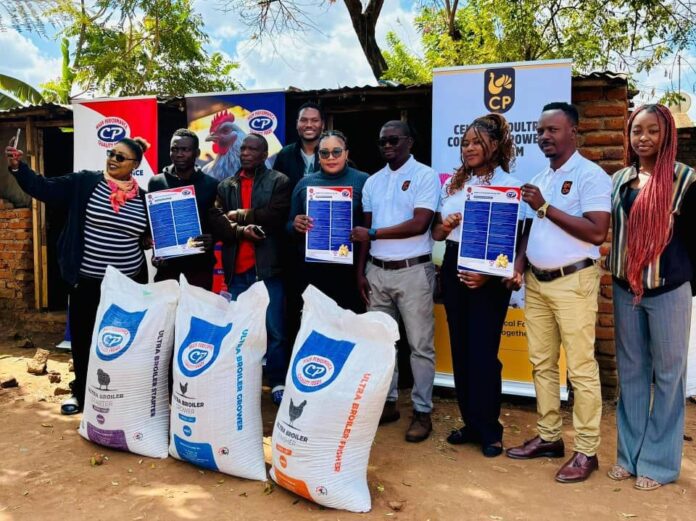By Linda Kwanjana
In a significant boost to Malawi’s poultry industry, over 150 small-scale poultry farmers in Lilongwe have been selected as the first beneficiaries of an innovative empowerment programme launched by Central Poultry (CP), the country’s leading poultry producer.
The initiative, which provides farmers with chicks, vaccines, feed, and technical support, aims to address the challenges faced by aspiring poultry farmers who lack the resources and expertise needed to succeed in commercial chicken farming.
The programme, currently in its pilot phase, targets farmers from Area 23, Area 18, Njewa, and Chitedze in Lilongwe.
According to CP’s head of marketing, Mike Makwakwa, the initiative is designed to build resilience among local farmers and help Malawi meet its growing demand for poultry products, which has consistently outstripped supply.

He said: “This is about empowering farmers to thrive in a sophisticated agricultural sector while addressing the country’s poultry shortage. ”
Under the programme, farmers receive inputs as a non-interest loan, which they can repay by selling their grown chickens to CP for slaughtering and packaging or by selling them independently at market prices.
“This flexible repayment model ensures farmers can sustain their businesses while contributing to the local economy,” Makwakwa added.
The initiative is part of CP’s broader vision to scale up poultry farming across Malawi.
One of the poultry farmers Josphine Kambanizithe from Area 23 thanked CP for the technical support, saying over the years she has been failing to raise chicken profitably.
She said: “You know keeping these chickens is not easy as they need alot of care so with this support I am sure I will make my first K1 million by the end of this year.”
According to CP following the pilot in Lilongwe, the plan is to expand the programme to other districts, targeting not only individual farmers but also vulnerable groups and community-based organizations with an interest in poultry farming.
“Beneficiaries are identified through collaboration with traditional leaders [chiefs] and agricultural extension workers, ensuring that support reaches those most in need,” Makwakwa said.
Malawi’s poultry sector is a critical component of the country’s agricultural economy, providing a source of income for many rural households and contributing to food security.
However, the industry faces significant challenges, including high input costs, limited access to quality chicks and feed, and a lack of technical knowledge among small-scale farmers.
These barriers have resulted in a persistent gap between domestic poultry supply and demand, leading to reliance on imports and higher prices for consumers.
Central Poultry’s initiative aligns with Malawi’s National Agriculture Policy, which emphasizes agricultural commercialisation and empowerment of smallholder farmers. By providing inputs and training, the programme not only supports farmers’ livelihoods but also contributes to the government’s goal of reducing poverty and achieving self-sufficiency in poultry production.
The selection of Lilongwe as the pilot location is strategic, given its proximity to urban markets and its significant population of small-scale farmers.
Areas like Njewa and Chitedze are known for their agricultural activity, making them ideal testing grounds for the programme.
The inclusion of vulnerable groups and community-based organizations in future phases reflects a commitment to inclusive development, addressing gender and social disparities in access to agricultural opportunities.
This initiative also comes at a time when Malawi is grappling with economic challenges, including inflation and currency depreciation, which have driven up the cost of agricultural inputs.
By offering non-interest loans, CP’s programme mitigates financial barriers, enabling farmers to invest in their businesses without the burden of high repayment costs.
If successful, this pilot could serve as a model for other agricultural sectors in Malawi, demonstrating how private-sector partnerships can drive sustainable development and economic empowerment.
As the programme scales up, it has the potential to transform Malawi’s poultry industry, creating jobs, improving food security, and reducing the country’s dependence on imported poultry products.



